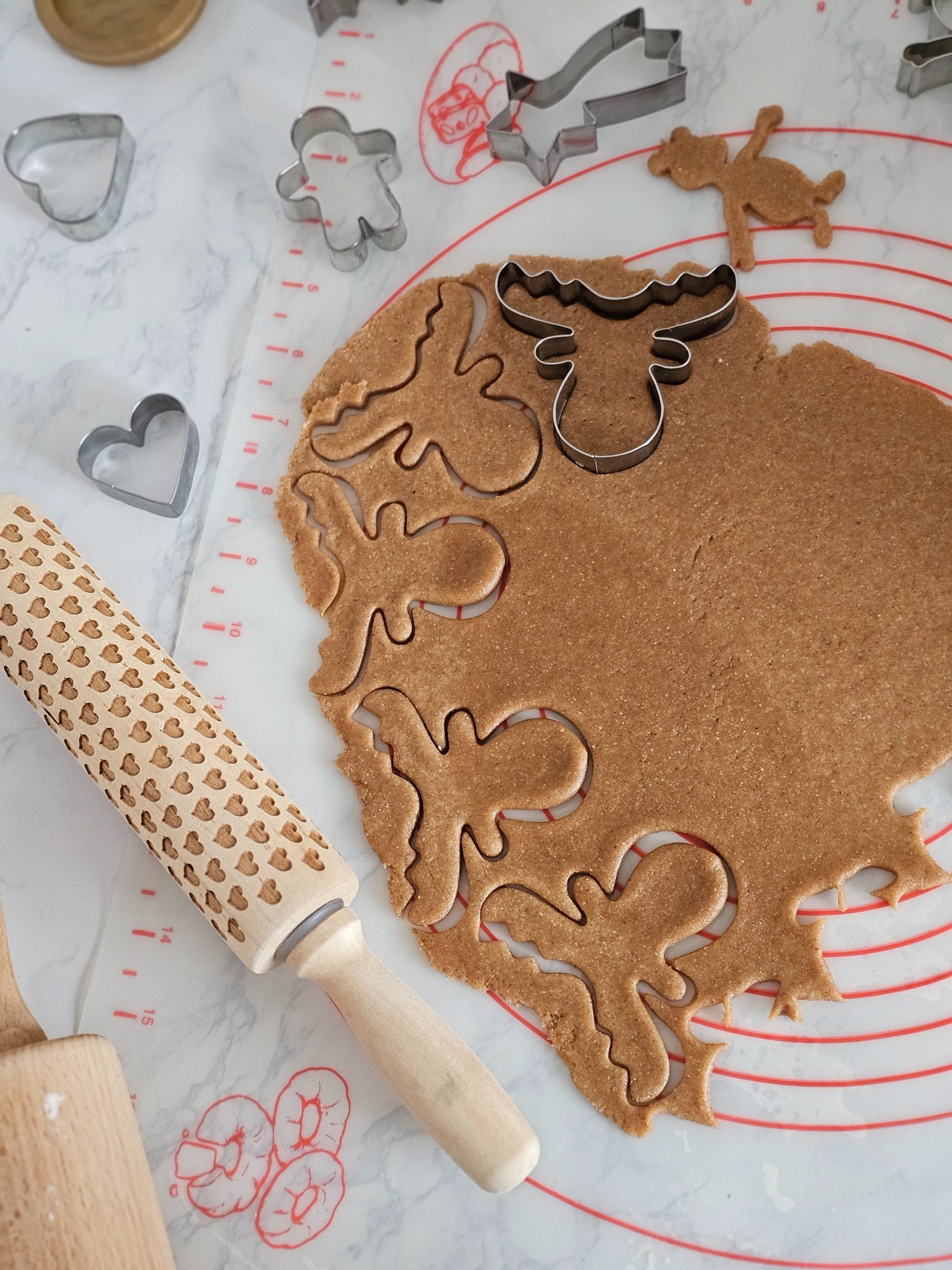Are you thinking about starting your own podcast? Before you hit that record button, it’s essential to brush up on your podcasting etiquette. In this article, we’ll explore the do’s and don’ts for hosts, ensuring that you create a professional and engaging podcasting experience. From selecting the right equipment, such as the Shure SM7B Cardioid Dynamic Microphone and Audio-Technica ATH-M50x Professional Studio Monitor Headphones, to mastering proper recording techniques, we’ve got you covered. Get ready to take your podcasting skills to the next level as we delve into the world of podcasting etiquette for hosts.
Understanding Podcasting Etiquette
The importance of podcast etiquette
When it comes to podcasting, etiquette plays a crucial role in creating a positive and professional environment for both hosts and guests. Podcasting etiquette ensures that everyone involved feels respected and valued, leading to a more enjoyable and successful podcasting experience. By following the do’s and don’ts of podcasting etiquette, you can establish credibility, build strong relationships with your guests, and engage your audience effectively.
Broad overview of Do’s and Don’ts
Before diving into the specifics, let’s take a broad look at the do’s and don’ts of podcasting etiquette. These guidelines will help you navigate various aspects of podcasting, from planning and recording to engaging with your audience and promoting your podcast.
Do’s:
-
Research your topic thoroughly: Before recording an episode, spend time researching and familiarizing yourself with the subject matter. This will ensure that you provide accurate and valuable information to your listeners.
-
Plan your content: Create an outline or script for your episode, including key points and questions to guide the conversation. A well-planned podcast will lead to a more organized and engaging discussion.
-
Choose appropriate equipment: Invest in high-quality podcasting equipment to ensure clear audio and a professional sound. Consider options such as the Shure SM7B Cardioid Dynamic Microphone or the Rode PSA1 Swivel Mount Studio Microphone Boom Arm for optimal audio quality.
-
Be respectful and attentive during recording: Show respect to your guests by actively listening, maintaining eye contact, and giving them the space to express their thoughts. This will create a comfortable and inclusive atmosphere.
-
Thank your guests: After the recording is over, express your gratitude to your guests for their time and contribution. A simple thank-you email or social media message goes a long way in building lasting relationships.
-
Properly edit the recording: Take the time to edit your podcast episodes carefully, removing any mistakes or irrelevant content. This will enhance the overall quality of your episodes and make them more enjoyable for your audience.
Don’ts:
-
Interrupt your guests: Allow your guests to speak without interruptions. It’s essential to respect their thoughts, opinions, and expertise.
-
Promote extreme views or hate speech: Avoid discussing controversial topics in a way that promotes hate speech or extremist views. Maintain a balanced and respectful approach to ensure a safe space for your listeners.
-
Neglect listener interaction: Engage with your audience by responding to their comments, questions, and feedback. This will create a sense of community and connection with your listeners.
-
Overwhelm your episodes with promotions: While promoting your podcast is important, find a balance between valuable content and promotional material. Too many advertisements can deter listeners and diminish the quality of your episodes.
-
Ignore constructive criticism: Embrace opportunities for growth and improvement by actively seeking and considering constructive criticism. Listen to feedback from your audience and implement necessary changes to enhance your podcasting skills.
By following these do’s and don’ts, you’ll set a strong foundation for podcasting etiquette and create a podcast that is enjoyable, respectful, and engaging for everyone involved. Let’s now delve into each aspect of podcasting etiquette to understand them better.
Preparing Your Podcast
Researching your topic
Before you start recording your podcast episode, it’s essential to thoroughly research your chosen topic. This research will help you gather accurate information, provide valuable insights, and create a well-informed discussion. Take the time to read books, articles, and credible sources related to your topic, and utilize reputable databases or online resources to gather statistical data or expert opinions. The more knowledgeable you are about your subject, the better-informed your conversation will be.
Planning your content
Planning your content is a critical step to ensure that your podcast episode flows smoothly and delivers a cohesive discussion. Create an outline or script that includes key points, questions, and transitions between topics. Having a clear structure will help you maintain focus during the recording and avoid rambling or getting off-topic. It is also beneficial to ensure a balanced distribution of speaking time between you and your guests, facilitating a well-rounded conversation.
Choosing appropriate equipment
investing in suitable podcasting equipment is essential to produce high-quality audio. Consider options such as the Shure SM7B Cardioid Dynamic Microphone, which is known for its professional sound, or the Rode PSA1 Swivel Mount Studio Microphone Boom Arm, which allows for easy adjustment and positioning. Additionally, good-quality headphones, such as the Audio-Technica ATH-M50x Professional Studio Monitor Headphones, will help you monitor the audio accurately. Equip yourself with a reliable recording device like the Zoom H6 Handy Recorder or the Behringer Xenyx X1204USB Premium 12-Input Mixer to ensure clear and crisp recordings. Lastly, a USB audio interface like the Focusrite Scarlett 2i2 (3rd Gen) USB Audio Interface can enhance the audio fidelity of your recordings.
By investing in appropriate podcasting equipment, you can elevate the overall sound quality of your episodes and provide a more enjoyable listening experience for your audience.

Quality Sound Production
The importance of audio quality
When it comes to podcasting, audio quality is of utmost importance. Your listeners’ experience depends heavily on how well they can hear and understand your content. Poor audio quality can lead to frustration, disconnection, and ultimately, a decline in listenership. Invest in high-quality microphones, such as the Shure SM7B or the Blue Yeti USB Microphone, to capture clear and crisp vocals. Additionally, utilizing audio editing software like Adobe Audition or Audacity can help enhance the audio quality during post-production by removing background noise, adjusting levels, and adding effects if desired.
Choosing the right microphone
Selecting the right microphone for your podcasting needs is crucial for achieving optimal audio quality. Consider factors such as microphone type, polar pattern, and connectivity options when making your decision. Dynamic microphones like the Shure SM7B or the Sennheiser E835 Dynamic Cardioid Vocal Microphone are excellent choices for podcasting as they offer clarity and durability. Condenser microphones, on the other hand, are more sensitive and suitable for controlled environments. USB microphones, like the Blue Yeti, offer convenience and ease of use for beginners, while XLR microphones provide professional-level sound quality and offer more flexibility in terms of audio interfaces and mixers.
Sound mixing and mastering
Sound mixing and mastering are essential steps in the post-production phase of podcasting. During mixing, you ensure that all audio elements, such as voices and background music, are balanced and blend well together. proper mastering involves applying the final touches, refining the overall sound quality, and making it consistent throughout the episode. Utilize tools like Auphonic Audio Leveling and Mastering Tool to streamline the process and achieve professional results. Remember to monitor your levels carefully, apply equalization and compression when necessary, and experiment with different effects like reverb or delay to enhance the audio production value.
By incorporating these sound production techniques, you’ll deliver a podcast episode with top-notch audio quality, captivating your audience and keeping them engaged throughout the episode.
Communication With Your Guests
Inviting guests professionally
When inviting guests to your podcast, it’s essential to approach them professionally and respectfully. Craft a well-written and personalized email, explaining why you would like them to be a guest on your show and highlighting the benefits for them, such as increased exposure or the opportunity to share their expertise with a relevant audience. Avoid generic messages and show genuine interest in their work or accomplishments. Providing specific details about the format, length, and expected topics of the podcast episode will help guests understand your vision and feel confident in accepting your invitation.
Respecting your guest’s time
Respecting your guest’s time is crucial in maintaining a positive relationship and making them feel valued. Be punctual and well-prepared for the recording, ensuring that you start and finish the session as scheduled. plan your episode’s structure and topics in advance to minimize unnecessary delays or distractions. While it’s natural for discussions to flow and exceed the planned duration, be mindful of your guest’s schedule and accommodate them accordingly. Clear communication and mutual understanding regarding time commitments will foster a harmonious and respectful podcasting experience for both you and your guests.
Clarifying podcast details before recording
Before hitting the record button, it’s important to clarify podcast details with your guest to ensure a smooth and productive recording session. Discuss the episode’s objectives, main topics, and any specific questions or prompts you plan to explore during the conversation. Make sure your guest understands what to expect, including the estimated duration of the episode and any potential post-production editing that might occur. By aligning expectations, both you and your guest can approach the recording with clarity and contribute to a meaningful and engaging podcast episode.

During the Recording
Being respectful and attentive
During the recording, it’s crucial to maintain a respectful and attentive demeanor towards your guests. Active listening is key to allowing your guests to share their insights fully. Show genuine interest in their ideas, ask follow-up questions, and provide verbal or non-verbal cues to indicate that you are engaged in the conversation. Avoid interrupting your guests and allow them to articulate their thoughts fully before responding. This respectful and attentive approach will create a positive environment, encourage open discussion, and result in a more authentic and valuable episode for your listeners.
Handling interruptions
Despite careful planning and preparation, interruptions may occur during podcast recordings. These interruptions could be technical issues, such as audio glitches or background noise, or external factors like unexpected phone calls or distractions. When faced with interruptions, it’s important to handle them calmly and professionally. Pause the recording if necessary, address the issue, and resume the conversation once the interruption is resolved. If technical issues persist, consider editing them out during post-production to maintain the episode’s flow and coherence.
Keeping the conversation flowing
Keeping the conversation flowing is an essential skill for podcast hosts. Guide the discussion by asking open-ended questions that encourage your guests to elaborate on their ideas or share personal experiences. Actively listen to their responses and respond with thoughtful follow-up questions or comments. Be mindful of the episode’s time constraints and ensure that each topic receives adequate attention without dwelling excessively on any single point. By facilitating a natural and dynamic conversation, you’ll create an engaging podcast episode that captivates your audience from start to finish.
Post-Recording Etiquette
Thanking your guests
After the recording is complete, it’s important to express gratitude to your guests for their time, insights, and contributions to the episode. Send a personalized thank-you email or message, highlighting specific aspects of their participation that you found valuable. This simple act of appreciation goes a long way in building rapport and fostering strong relationships with your guests. Additionally, consider mentioning your guest’s work or upcoming projects on your podcast or social media platforms to further promote their endeavors.
Properly editing the recording
Editing plays a significant role in enhancing the quality and coherence of your podcast episodes. Take the time to review the recording carefully, removing any mistakes, awkward pauses, or irrelevant content. Focus on maintaining a smooth flow of conversation while ensuring that the episode retains its natural and authentic feel. Utilize software like Adobe Audition or Audacity to edit your recordings effectively, monitor audio levels, and add any necessary post-production effects. By properly editing your recording, you’ll deliver a polished and professional episode that delights your audience.
Promoting your guest’s work
As a podcast host, one of your responsibilities is to promote the work and accomplishments of your guests. Highlight their expertise in the episode’s show notes and provide links or resources related to their projects or businesses. Utilize your podcast’s social media platforms or website to further promote your guest’s work even after the episode is released. Engage in cross-promotion by featuring your guests on your podcast, blog, or other media channels, and encourage them to do the same for you. By mutually supporting each other’s endeavors, you’ll expand your reach and create a mutually beneficial relationship.

Addressing Controversial Topics
Ensuring respect and balance
When addressing controversial topics on your podcast, it’s crucial to approach them with respect and maintain a balanced perspective. Avoid promoting hate speech or extremist views, as this can alienate your audience and create a negative reputation for your podcast. Foster open dialogue and encourage diverse perspectives while ensuring that the conversation remains respectful and inclusive. Recognize that it’s okay to have disagreements, but it’s essential to handle them with maturity and empathy.
Offering right of reply
When discussing controversial topics, it’s crucial to provide individuals or groups mentioned in your episode the opportunity to respond or provide their perspective. This demonstrates fairness and journalistic integrity. Reach out to them, expressing your intention to include their viewpoint in subsequent episodes or through other forms of media, such as interviews or written statements. By offering the right of reply, you demonstrate respect for differing opinions and foster a more balanced and informed dialogue.
Avoiding extreme views or hate speech
As a responsible podcast host, it is important to avoid promoting extreme views or engaging in hate speech. Take precautions to ensure that your discussions remain respectful, unbiased, and focused on generating constructive conversations. Establish clear guidelines for yourself and your guests regarding unacceptable language or viewpoints. This will create a safe and inclusive environment for your listeners and maintain the integrity of your podcast.
Engaging Your Audience
Interacting with listeners
Engaging with your audience is vital for building a strong connection and loyalty. Actively listen to their feedback, comments, and questions, and respond promptly. Encourage audience interaction by incorporating segments like Q&A sessions or listener-submitted topics. Consider launching a dedicated email address, social media pages, or a website forum to encourage direct communication with your listeners. By acknowledging and valuing your audience’s input, you’ll foster a sense of community and enhance the overall podcasting experience.
Addressing feedback and criticism
Feedback and constructive criticism from your audience are valuable opportunities for growth and improvement as a podcaster. Embrace these experiences and listen to what your listeners have to say. Whether the feedback is positive or negative, it’s essential to respond professionally and graciously. Consider adjusting your content or delivery based on constructive feedback, while taking care to maintain your authentic voice and style. Remember, your listeners’ opinions can help shape and enhance your podcasting journey.
Maintaining a consistent release schedule
Consistency is key in maintaining a dedicated and engaged audience. Establish a regular release schedule for your podcast episodes, whether it’s weekly, bi-weekly, or monthly. Communicate this schedule to your audience and stick to it as closely as possible. Consistency builds trust and reliability, ensuring that your listeners know when to expect new episodes. Additionally, consider providing updates or bonus content during breaks to keep your audience engaged and maintain their interest in your podcast.

Promoting Your Podcast
Best practices for promotion
Promoting your podcast effectively is essential for attracting new listeners and growing your audience. Utilize various marketing strategies, such as social media, email newsletters, guest appearances on other podcasts, or collaborations with influencers in your niche. Utilize eye-catching graphics or use tools like Canva Graphic Design Tool to create visually appealing promotional materials. Engage with relevant online communities, forums, or discussion groups to share your podcast and engage with potential listeners. By implementing these best practices, you’ll increase visibility for your podcast and reach a wider audience.
Working with advertisers
As your podcast grows, working with advertisers can provide financial support and opportunities for collaboration. When seeking out advertisers, choose brands or products that align with your podcast’s content and values. Maintain transparency with your audience by disclosing any sponsored content or partnerships. Consider creating custom advertising packages or special discounts for your listeners to incentivize their engagement and support. As with any form of promotion, maintain a balance between valuable content and promotional material, ensuring that your podcast remains enjoyable and engaging for your audience.
Balancing content and promotion
While promoting your podcast is vital, it’s essential to strike a balance between promotional content and the main focus of your episodes. Avoid overwhelming your listeners with excessive advertisements or sponsor mentions that overshadow the core content. Develop a clear strategy for integrating promotional material seamlessly into your episodes, ensuring that they add value and do not disrupt the flow of the conversation. By achieving this balance, you’ll maintain the integrity of your podcast while effectively promoting products or services.
Continuous Improvement and Learning
Keeping up with podcasting trends
The podcasting landscape is constantly evolving, with new trends, technologies, and formats emerging regularly. As a podcast host, it’s crucial to stay informed and adapt to these changes. Follow industry news, listen to other podcasts, and participate in podcasting communities to stay up to date with the latest trends and techniques. Embrace emerging technologies that can enhance your podcasting experience and provide additional value to your listeners. By staying ahead of the curve, you’ll evolve as a podcaster and offer an engaging experience that resonates with your audience.
Improving your podcasting skills
Just like any skill, podcasting requires continuous improvement and refinement. Seek opportunities to enhance your podcasting skills by attending workshops, webinars, or conferences dedicated to podcasting. Engage with experienced podcasters, seek mentorship, or join online communities to learn from their insights and experiences. Experiment with new formats, storytelling techniques, or interviewing styles to keep your episodes fresh and engaging. By investing time and effort into improving your podcasting skills, you’ll elevate the quality of your content and provide an exceptional listening experience.
Benefitting from constructive criticism
Constructive criticism is invaluable for growth and improvement as a podcaster. Welcome feedback from your listeners, fellow podcasters, or industry professionals and use it as an opportunity to enhance your content. Analyze the suggestions and recommendations provided, and make adjustments or adaptations accordingly. Remember that no podcast is perfect, and there is always room for improvement. By embracing constructive criticism and implementing necessary changes, you’ll grow as a podcaster and continually deliver content that resonates with your audience.
In conclusion, understanding and practicing podcasting etiquette is key to a successful and enjoyable podcasting journey. From preparing and recording to engaging with your audience and promoting your podcast, following these guidelines will help you create a positive environment, establish credibility, and build strong relationships with your guests and listeners. By continuously improving your podcasting skills, embracing feedback, and staying knowledgeable about industry trends, you’ll evolve as a podcaster and provide a captivating and rewarding experience for your audience.
